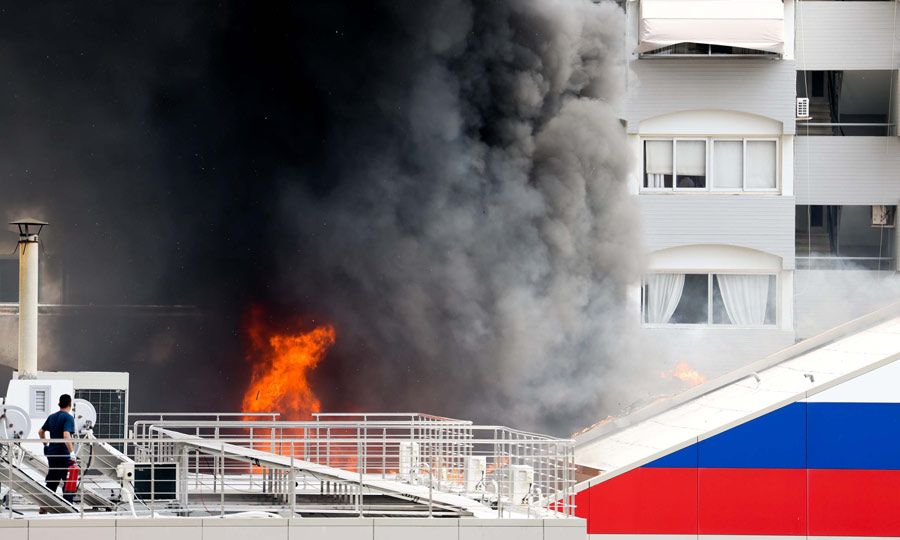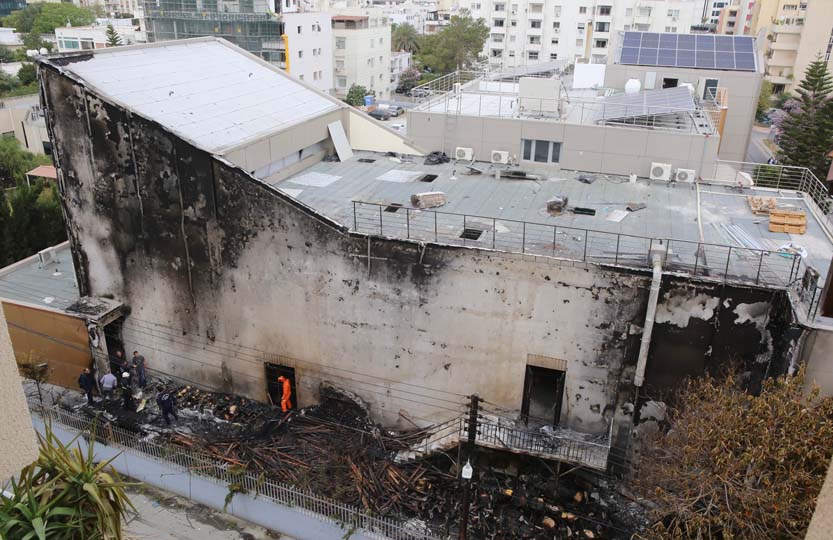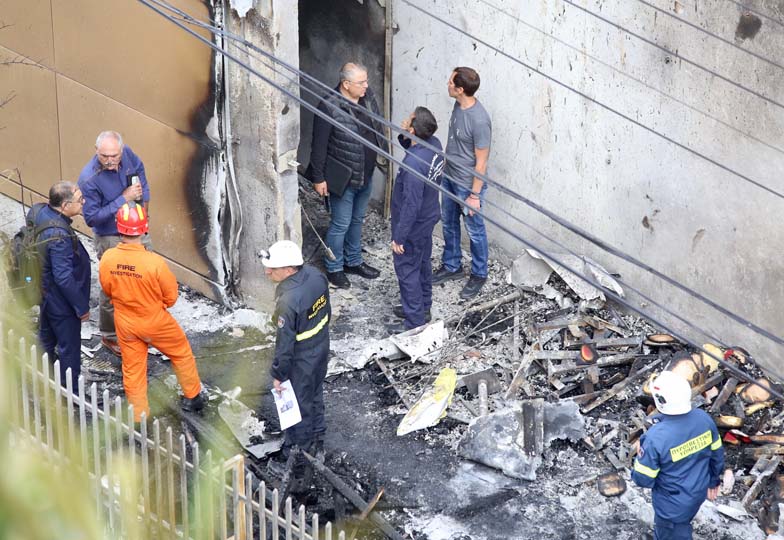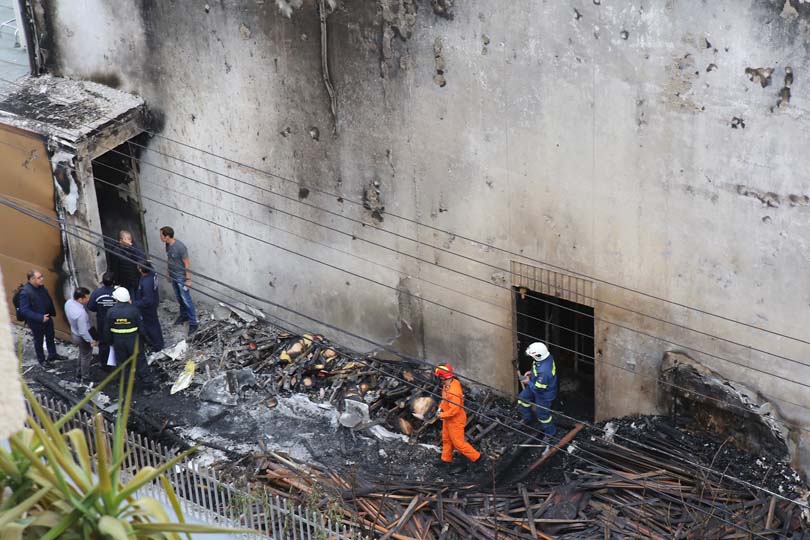
by Yiannis Ioannou
According to the competent authorities of the Republic of Cyprus, the fire that broke out at the Russian Cultural Centre on Wednesday afternoon was determined to be caused by human error, specifically by a cigarette lighter. This conclusion was reached after a thorough examination conducted by both specialized personnel of the Cyprus Fire Brigade and the Police, in order to rule out the possibility of malicious action or arson.
The fire that caused significant damage to the Russian Cultural Centre building, which has been its home since 1978, was ignited by a small fire source that quickly escalated into a larger blaze. Due to ongoing renovations at the building, flammable materials were present at the time of the incident, leading to extensive damage. Despite the investigations still being ongoing, the Cyprus Fire Brigade has already ruled out the possibility of arson using Molotov cocktails, as no traces of such devices have been found. Additionally, the Cyprus Police have examined the CCTV footage of the area and found no evidence of suspicious activity that would suggest a terrorist attack, deliberate arson, or any other form of external intervention. The building also houses a Russian restaurant, and the central location within the city means that there are numerous shops, government offices, and medical centers in the immediate vicinity.
Attempted Russian disinformation?
The intriguing aspect of the fire, as noted by experienced observers and subject to analysis, is the apparent attempt by Russian officials to connect it with malicious or terrorist activity and to use it to highlight the ongoing conflict in Ukraine and the strained relations between Russia and the EU and the West.
Immediately following the fire, Yevgeny Primakov, the head of Rossotrudnichestvo, a Russian federal institution under the Russian Foreign Ministry, spoke of a terrorist act for which Ukrainians living in Cyprus or "supporters of Kyiv" were responsible. The head of the Russian Cultural Centre, Alina Ranchenko, who is an accredited diplomat at the Russian embassy in Nicosia, also made similar statements to Russian media outlets such as TASS and Russia 24, suggesting a malicious action by the pro-Ukrainian diaspora and third-country embassies.
Almost immediately after the fire, on popular Telegram channels in Cyprus where Russian speakers participate, a narrative emerged about the use of Molotov cocktails and a "suspicious white van". Additionally, a link was made between the alleged arson and the well-known incident that happened on May 2, 2014, in the city of Odesa, Ukraine, where a building housing a trade union was burnt down with human casualties during the "Euromaidan" clashes between Ukrainian and Russian-speaking citizens. This event has acquired mythological status in the post-2013 Ukrainian-Russian political and military conflict, with a blame game between Kyiv and Moscow as to who is responsible.
The approach taken by Russian officials in framing the fire as a malicious act is in line with the modus operandi of Russian disinformation campaigns and operations, as documented in recent scientific literature, as well as in studies and documents from the European Union.
In lieu of an epilogue
The attempt by Russian officials to link the fire, caused by human error, with the Ukrainian war and to label it as a terrorist act, despite the ongoing investigation by the competent Cypriot authorities, is highly concerning for Nicosia, especially at a critical time with Russia's invasion of Ukraine. This politicization of the event may have significant implications for the relationship between Cyprus and Russia, as well as the wider international community.
[This article was translated from its Greek original]































